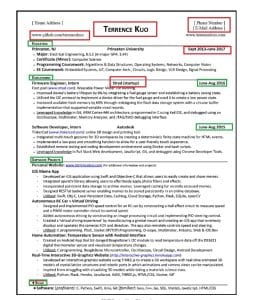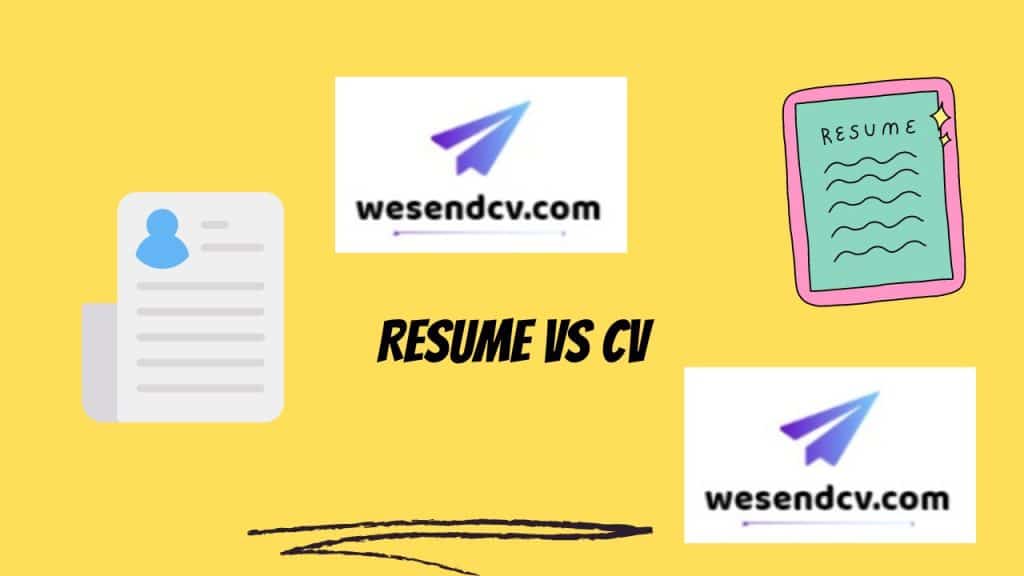Resume vs. CV: What’s the Difference and How to Choose the Right One
As a career coach with over a decade of experience in the industry, I’ve seen many job seekers struggle with the age-old question: what’s the difference between a resume and a CV? While both documents serve the same purpose – to showcase your skills, experience, and achievements to potential employers – they have distinct differences in terms of content, format, and purpose.
What’s the Difference Between a Resume and a CV?
A resume is a concise, one- to two-page document that highlights your most relevant work experience, skills, and education. It’s typically used for domestic job applications and is designed to get you noticed by applicant tracking systems (ATS) and hiring managers. A CV, on the other hand, is a more comprehensive document that provides a detailed account of your entire work history, education, and achievements. It’s often used for international job applications, academic positions, and research roles.
When to Use a CV Instead of a Resume
If you’re applying for a job in a highly competitive field, such as academia, research, or medicine, a CV is likely the better choice. CVs are also suitable for job seekers with extensive work experience, multiple degrees, or a strong research background. Additionally, if you’re applying for a job in a foreign country, a CV is often the preferred format.
How to Decide Which Format to Use for Your Job Application
To determine which format to use, consider the following:
- Job description: If the job description asks for a CV, it’s likely a good choice. If it asks for a resume, stick with that.
- Industry: If you’re applying for a job in a highly competitive field, a CV may be more suitable.
- Work experience: If you have extensive work experience, a CV may be a better choice.
- Education: If you have multiple degrees or a strong research background, a CV may be more suitable.
Key Differences in Content Between a Resume and a CV
While both documents should include your contact information, work experience, education, and skills, there are some key differences in content:
- Work experience: A CV typically includes a detailed account of your work experience, including job descriptions, achievements, and responsibilities. A resume is more concise and focuses on highlighting your most relevant experience.
- Education: A CV includes a detailed account of your education, including degrees, certifications, and research experience. A resume may include a summary of your education and relevant coursework.
- Achievements: A CV includes a list of your achievements, such as publications, presentations, and awards. A resume may include a few notable achievements but focuses more on your work experience.
Can I Use the Same Resume for Both Domestic and International Job Applications?
While it’s possible to use the same resume for both domestic and international job applications, it’s not always the best choice. A CV is often more comprehensive and detailed, which may be more suitable for international job applications. Additionally, some countries have different formatting and content requirements for job applications.

Main Highlights of Content
ToggleFAQ: Resume vs. CV – What’s the Difference and How to Choose the Right One
Hey there! I know navigating the world of job applications can be a bit overwhelming, especially when it comes to understanding resumes and CVs. So, I’ve put together this FAQ to help you find clarity and make the right choice for your job search. Let’s dive in!
1. What is a Resume?
A resume is a concise document that summarizes your skills, experiences, and education.
- Length: Typically 1-2 pages.
- Purpose: Focused on tailoring your qualifications to a specific job.
- Content: Includes work experience, education, skills, and sometimes a summary or objective.
2. What is a CV (Curriculum Vitae)?
A CV is a more comprehensive document that details your entire academic and professional history.
- Length: Can be several pages long, depending on your experience.
- Purpose: Used mainly in academia, research, and some international job settings.
- Content: Includes everything in a resume, plus publications, presentations, awards, and professional affiliations.
3. When should I use a Resume?
- Job Applications: Whenever applying for most jobs in the private sector, startups, or non-profits.
- Focus: Emphasize relevant work experience and skills tailored to the specific job.
4. When should I use a CV?
- Academic Positions: Applying for research positions, university faculty roles, or graduate school.
- International Opportunities: Many countries outside the U.S. use the term CV for job applications.
5. How do I choose between a Resume and a CV?
| Factor | Use Resume | Use CV |
|---|---|---|
| Job Type | Private Sector Jobs | Academic or International Roles |
| Length | Short (1-2 pages) | Long (multiple pages) |
| Detail Level | Highlights relevant experience | Comprehensive overview of career |
| Customization | Highly tailored for specific positions | More static; less tailored |
6. Can I convert a Resume into a CV?
Yes, you can!
- Add Content: Include any additional academic details, publications, or research work.
- Expand Sections: Elaborate on your experiences and achievements.
7. Is it acceptable to have both?
Absolutely!
- Resume for Jobs: Keep a polished resume for job applications.
- CV for Academia: Maintain a detailed CV for academic or research-related opportunities.
8. Tips for Writing Each Document?
For Resumes:
- Tailor it for each application.
- Highlight measurable achievements.
- Keep the format clean and readable.
For CVs:
- Include all relevant experience, even if it might not apply directly.
- Organize sections clearly (Education, Publications, etc.).
- Use a consistent format throughout.
Final Thoughts
In conclusion, while both resumes and CVs serve the same purpose, they have distinct differences in terms of content, format, and purpose. By understanding the differences between the two, you can choose the right format for your job application and increase your chances of getting noticed by hiring managers and ATS. Remember to tailor your document to the specific job you’re applying for, and don’t be afraid to seek the advice of a career coach or professional association for guidance. Choosing between a resume and a CV can seem tricky, but once you know your career goals and the industry standards, it becomes easier. Always tailor your document to your audience, and don’t hesitate to seek feedback from trusted friends or mentors. If you have any more questions or need further clarification, feel free to reach out! Happy job hunting!
About the Author
Linda Kaurji – As a career coach with over a decade of experience in the industry, I’ve helped countless job seekers navigate the complex world of job applications. With a background in human resources and a passion for helping others achieve their career goals, I’m committed to providing expert advice and guidance to job seekers of all levels.
